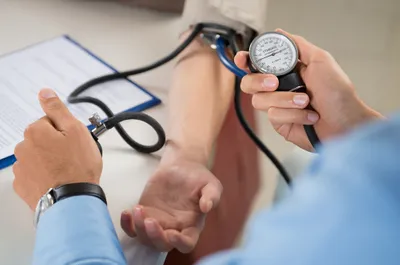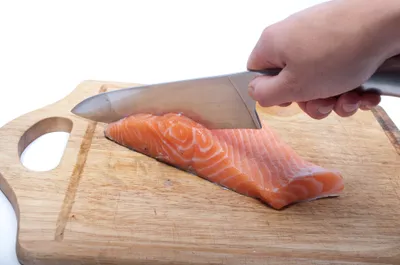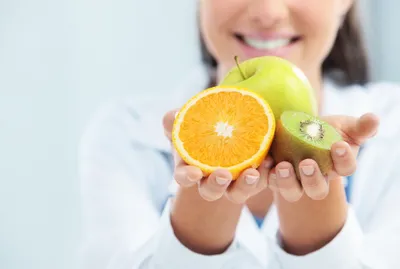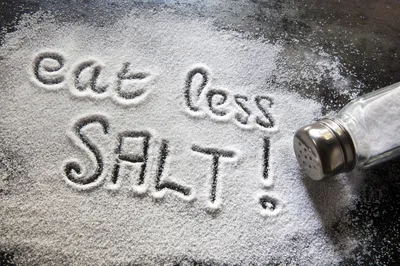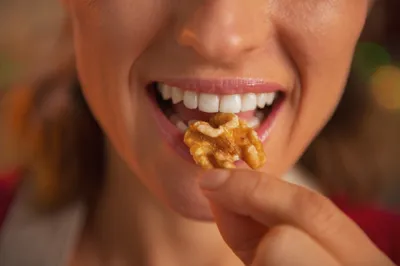Cardiovascular disease is known as the silent killer—especially for women. It takes the lives of roughly one million Americans every single year, which equals approximately 1 in 4 deaths (more than half are female). Heart disease is considered a silent killer because it often doesn’t display telltale symptoms like cancer or lung disease. And many individuals who don’t have their cholesterol and blood pressure checked regularly succumb to heart attack without ever realizing they ever had a health issue.
But why take my word when you can hear some heartfelt advice directly from the mouths of these cardiovascular professionals (keep in mind, the following slides are paraphrased not direct quotes)…
1. Begin Screenings Early
Start asking for regular blood pressure, body mass index, cholesterol, and blood glucose tests in your 20s. At the beginning, they may only be needed every second to fifth year, but once you turn 50 be sure to have them monitored more frequently—particularly if you are showing signs of heart disease (i.e., fatigue and shortness of breath for no reason, indigestion, anxiety following exercise).
~ JoAnne Foody, M.D., Medical Director, Brigham and Women’s Hospital and Associate Professor of Medicine, Harvard Medical School
2. Consume Healthy Fish Fats
Research on heart-healthy fats link omega-3 fatty acids to decreased blood pressure and blood levels of triglycerides. High amounts of omega-3 fats can be found in fish (i.e., salmon, tuna, and sardines) and fish oils. You should be consuming healthy fats from these sources at a minimum of 2 to 3 times per week.
~ The UCSF Cardiovascular Care and Prevention Center
3. Take Cues from Medical Organizations
Opinions vary when it comes to what’s “good” and “bad” food for heart health. When it comes to seeking the best diet advice, consult the national guidelines put in place by expert researchers from trusted organizations like the American Heart Association—not on diet fads and trends.
~ Lori Mosca, MD, founder of Columbia University Medical Center’s Preventive Cardiology Program
4. Limit Sodium Intake
For a healthy heart and decreased blood pressure levels, aim to limit your consumptions of salt-rich foods (i.e., soy sauce, salad dressings, canned soups, cured meats, and processed snack foods). Keeping these foods out of reach will help you consume less sodium and keep your blood pressure in a safe range.
~ Dr. Leslee Shaw, Research Scientist, American Heart Association Cardiovascular Imaging Committee
5. Consult With Your Pharmacist About Medications
For heart healthy longevity, talk to your pharmacist about implementing baby aspirin into your day. Medical research shows that taking 2 tablets per day can greatly increase blood circulation. Your pharmacist can provide sound medication advice when it comes to the use of prescriptions with over-the-counter medications.
~ Dr. Mehmet Oz, Cardiac Surgeon and Host of The Dr. Oz Show
6. Vegetarians Go Nuts for Healthy Fats
If you’re a vegetarian or vegan you still need to consume heart healthy fats to reduce inflammation in the arteries around your heart. Luckily you can find plenty of omega-3 fatty acids in walnuts. Your heart will remain healthy if you aim to eat six walnuts before lunch and dinner, and you will stay satiated and overeat less often.
~ Michael Roizen, MD, Chief Wellness Officer, Cleveland Clinic
7. Quit Smoking—Now!
Smoking cigarettes is the single most preventable cause of heart disease and premature death for men and women across the U.S. Smoking is considered so destructive to the heart because it not only rises the chances of developing cardiovascular disease, but it also poses the deadly risk of peripheral vascular disease (PVD), coronary heart disease (CHD), and sudden cardiac arrest.
~ The U.S. Surgeon General
8. Limit Your Reach for Processed Foods
To maintain a healthy heart, limit or avoid eating heavily processed or “white” foods—such as potato chips, white breads and pastas, and processed crackers—as well as food high in saturated fats—such as deep fried foods—as they offer minimal nutritional value. As snack alternatives, reach for fresh vegetables and fruits instead.
~ Dr. Sanjay Gupta, CNN Chief Medical Correspondent and Surgeon

